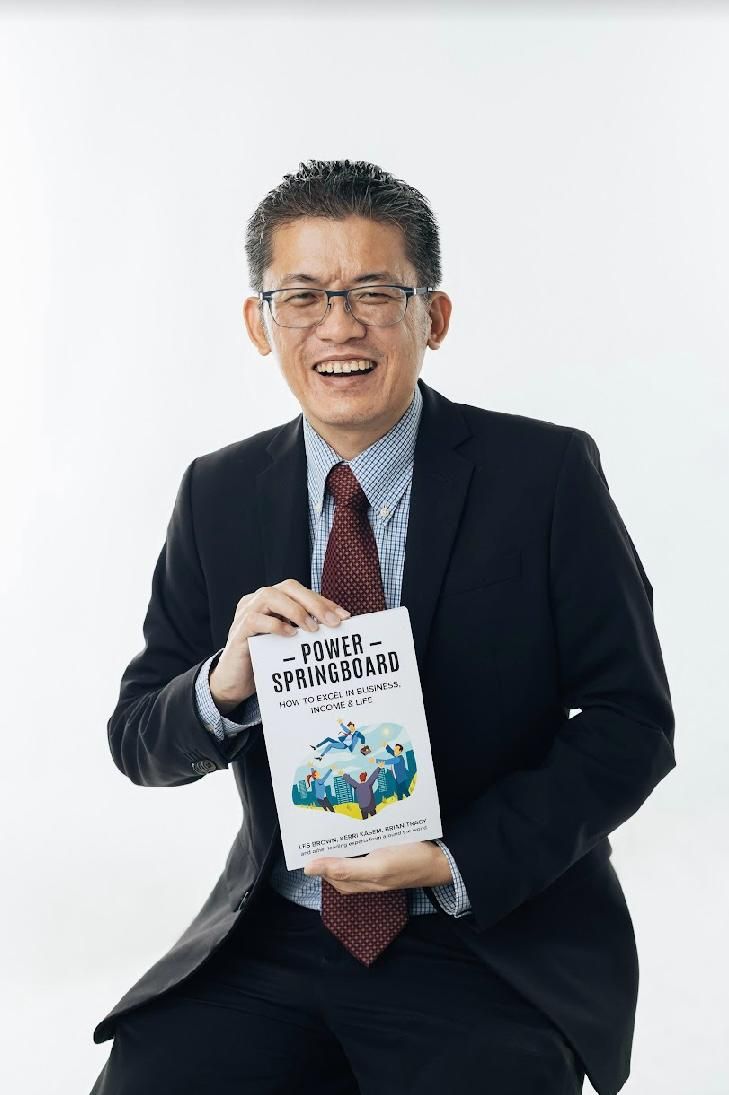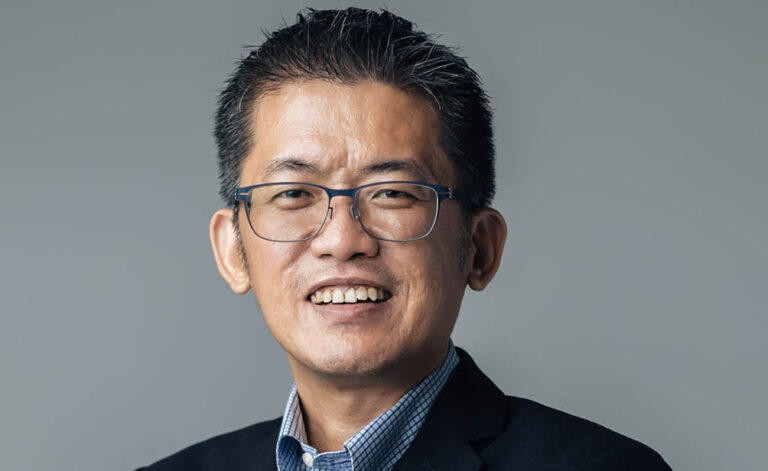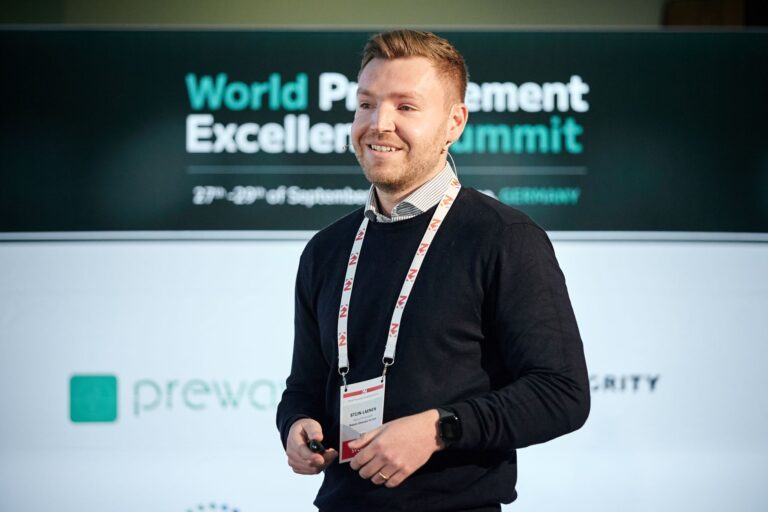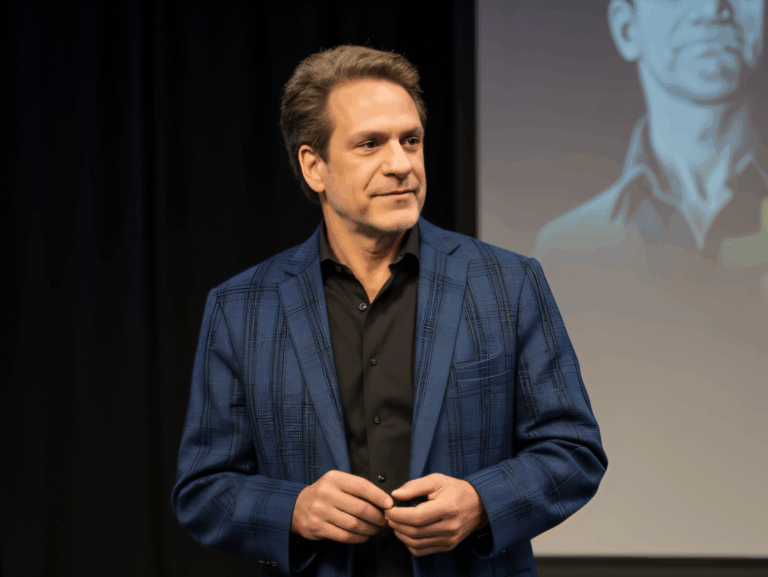Dr. Georgios Matis: A Global Advocate for Life-Changing Therapies
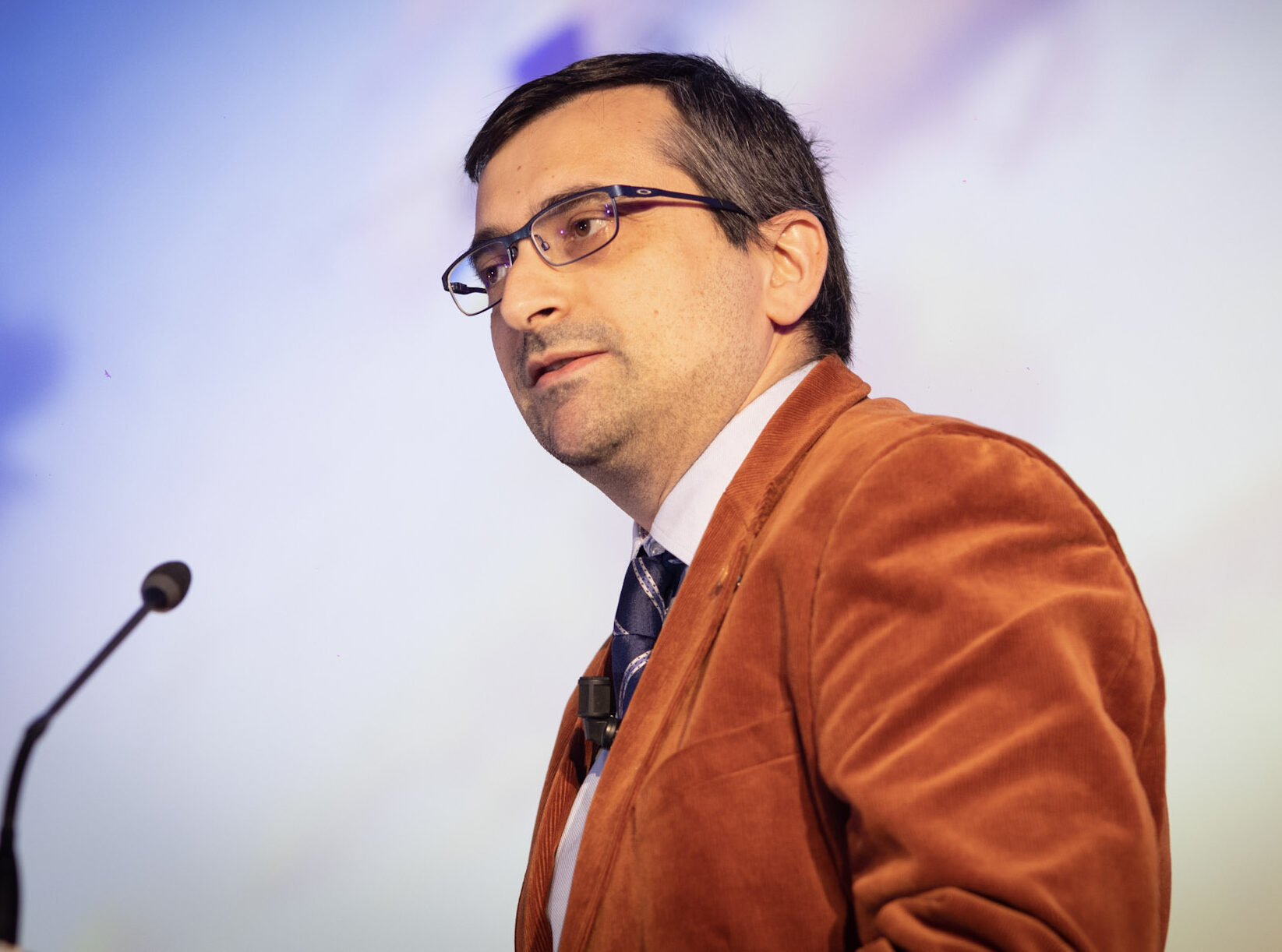
Dr. Georgios Matis: A Global Advocate for Life-Changing Therapies
Pain has a way of stealing life’s most cherished moments. For those battling chronic conditions like back pain, spasticity, or Complex Regional Pain Syndrome (CRPS), even the simplest actions—holding a cup of coffee, enjoying a walk, or embracing loved ones—can feel impossibly out of reach. Fortunately, the rise of neuromodulation has reshaped the landscape of pain management. By targeting the nervous system with precision through technologies like spinal cord stimulation (SCS) and peripheral nerve stimulation (PNS), this field is not only easing pain but also restoring lives. It’s where innovation meets hope, offering patients a chance to reclaim moments they thought were lost forever.
At the forefront of this transformative field stands Dr. Matis, a passionate leader and pioneer in neuromodulation therapies. His career has been shaped by powerful patient stories—moments of triumph where debilitating pain was replaced with freedom and possibility. As the Head of the Pain/Spasticity Section, Department of Stereotactic & Functional Neurosurgery, at University Hospital Cologne, Cologne, Germany, Dr. Matis combines deep clinical expertise with compassionate care, delivering life-changing treatments to patients from across the globe.
With thousands of surgeries under his belt and a relentless drive to advance the science of neuromodulation, Dr. Matis isn’t just treating pain—he’s reimagining what’s possible for those who suffer, one breakthrough at a time.
Bringing Relief Where Pain Persists
Dr. Matis’ path into the world of neuromodulation (NMD) and the treatment of chronic pain and spasticity began with powerful, defining experiences early in his career. One of his most impactful encounters involved a young patient suffering from Complex Regional Pain Syndrome (CRPS). The pain was so severe that she couldn’t perform the simplest tasks, like touching her own arm. However, after undergoing spinal cord stimulation, she described the experience as transformative—like being “reborn”—and was finally able to reclaim control over her life.
Another unforgettable case was that of a young woman with atypical facial pain. Through a carefully designed combination of spinal cord stimulation (SCS) and peripheral nerve stimulation (PNS), she experienced an extraordinary shift. For the first time in years, she found herself joyfully playing in the snow with her family, a moment that had once seemed impossible.
These life-altering transformations deeply influenced Dr. Matis, instilling in him a profound dedication to discovering and advancing innovative treatments for those battling chronic pain. Witnessing such changes solidified his belief in the power of neuromodulation to restore not only physical abilities but also the sense of hope and possibility that chronic pain often diminishes.
A Journey of Care, Curiosity, and Progress
Driven by a powerful combination of scientific curiosity and human empathy, Dr. Matis is committed to transforming the lives of patients dealing with chronic pain and spasticity. Every patient presents a unique challenge, motivating him to discover innovative solutions while maintaining an unwavering focus on compassionate care. The moment a patient regains their quality of life and achieves significant clinical progress serves as a profound reminder of his purpose and dedication.
Dr. Matis draws inspiration from Václav Havel’s words: “It is not enough to stare up the steps, we must step up the stairs.” This philosophy underscores his journey to consistently grow—both scientifically and personally—ensuring he delivers the best possible outcomes for those in his care.
Thriving Amid Change and Uncertainty
At the age of 37, Dr. Matis embarked on his transformative journey into the field of neuromodulation (NMD), a path marked by significant challenges and an unwavering commitment to growth. His first obstacle was learning German—achieving proficiency within just six months to secure the necessary certification. This required complete immersion: engaging in intensive conversations, consuming German media, and reading extensively.
Coming from Greece, where neuromodulation surgeries were unfamiliar, Dr. Matis had to build his expertise from the ground up. He dedicated himself to hands-on learning, actively participating in nearly every surgical procedure five days a week. This commitment allowed him to perform close to 7,000 surgeries and successfully implant around 600 neurostimulators over time.
Adjusting to the German healthcare system presented another steep learning curve, as it differed greatly from the system he knew in Greece. Dr. Matis quickly learned to collaborate with a diverse network of professionals, including nurses, physicians, sales representatives, medical associations, and legal teams. To enhance his leadership and communication skills, he turned to numerous LinkedIn courses, taking a proactive approach to personal and professional development.
Leaving his home country with two young children and no guarantee of success was a leap of faith that demanded resilience and adaptability. Yet, through relentless effort, Dr. Matis not only overcame these barriers but also thrived in this specialized and demanding field, establishing himself as a dedicated and skilled professional.
Where Technology Meets Compassion in Care
Dr. Matis believes that groundbreaking technologies such as spinal cord stimulation (SCS) and artificial intelligence (AI) are transforming the landscape of patient care. These advancements allow for precise diagnostics and highly personalized treatment plans, enabling significant improvements in outcomes that were unimaginable just a decade or two ago. Programming times are now reduced, and patients experience enhanced quality of life thanks to these tools.
Yet, Georgios emphasizes that technology alone cannot provide true healing. While innovation brings extraordinary potential, it is the human connection—marked by empathy and understanding—that remains at the core of effective care. By combining cutting-edge tools with compassionate practices, medical professionals can create truly transformative experiences for their patients.
Georgios underscores the importance of balancing technological advancements with a genuine human touch, referencing Aristotle’s timeless words: “Educating the mind without educating the heart is no education at all.” True progress, he asserts, emerges when innovation is guided by empathy—when both work together to address the unique needs of each individual.
For Georgios, the future of care lies in the harmony of precision and compassion, ensuring technology is used not just with intelligence but also with wisdom and humanity.
Reimagining Patient Journeys Through Synergy
What sets Georgios’ approach apart is his deep-rooted belief in the transformative power of collaboration and a holistic view that embraces every aspect of a patient’s journey. Inspired by Greek philosophy, he perceives medicine as both an art and a science—a pursuit fueled by curiosity, passion, and an unwavering commitment to improving lives.
Dr. Matis’ methodology thrives on synergy and teamwork. By integrating the collective insights of a diverse network of professionals, the practical expertise of medical device programmers, and the unique experiences shared by patients, he crafts personalized solutions that address individual needs. This collaborative approach enables not just the treatment of conditions but the genuine transformation of lives.
The Art of Learning and Leading
Throughout his career, Dr. Matis has been fortunate to experience the profound mentorship of Dr. A. Koulousakis, an influential figure who significantly shaped both his personal and professional journey. Under Dr. Koulousakis’ guidance, Dr. Matis made the pivotal decision to move to Germany, where he deepened his understanding of neuromodulation (NMD) surgeries.
Dr. Koulousakis not only shared his vast technical expertise but also imparted essential life lessons, emphasizing humility and servant leadership in medicine. His philosophy encouraged Dr. Matis to view patients as active participants in their care, fostering an atmosphere of collaboration and mutual respect. He reminded Dr. Matis of the importance of maintaining a sense of humility—never taking himself too seriously while staying fully committed to patient well-being.
These teachings have left an indelible mark on Dr. Matis, shaping his own approach to medicine. Today, he blends technical proficiency with genuine empathy, carrying forward a philosophy that prioritizes collaboration, expertise, and compassionate care.
The Evolution of Pain Management Tools
Over the years, treatments for pain and spasticity have witnessed remarkable progress, largely fueled by advancements in neuromodulation and personalized medical care. Dr. Matis highlights one particularly exciting development: the creation of superior leads that deliver more precise and targeted therapy. These improved leads are complemented by groundbreaking stimulation waveforms—such as FAST, Contour, DTM, and Burst—which are revolutionizing the way pain relief is achieved.
In addition to these advancements, neurostimulators have undergone significant enhancements, becoming smaller, longer-lasting, and far more versatile in their programming capabilities. Technologies like closed-loop systems, MRI compatibility, and multi-dosing profiles in pumps are contributing to greater precision and consistency in treatment delivery.
Looking ahead, Dr. Matis envisions a future where pain management becomes even more responsive and personalized. He anticipates further progress, such as MRI compatibility extending to 7 Tesla, along with the development of more tailored waveforms to address specific pain conditions and spasticity. Artificial intelligence will also play a pivotal role in optimizing therapy programming, enabling remote monitoring and adjustments that redefine the standard of care for chronic pain patients.
Dr. Matis also points to the expansion of neuromodulation into new areas—such as stimulating the multifidus muscle to address chronic mechanical low back pain. Equally encouraging is the increasing interest among younger professionals in the field of neuromodulation, which signals a promising future for its continued evolution.
As these technologies advance, Dr. Matis believes they hold the potential to go beyond symptom management, offering transformative treatments that can dramatically improve the quality of life for individuals suffering from chronic pain and spasticity.
Dedicated to Advancing Neurosurgery Worldwide
Dr. Matis is honored to be recognized for his significant contributions to the fields of neurosurgery and pain management. Since November 2024, he has served as Secretary and Board Member of the German Society for Neuromodulation (DGNM), a role that enables him to help shape and advance neuromodulation practices across Germany.
In addition to this leadership position, Dr. Matis contributes globally to the academic and scientific community. He serves on the Editorial Board of Neuromodulation: Technology at the Neural Interface, the official journal of the International Neuromodulation Society (INS), which boasts an impact factor of 3.2. His expertise is also shared as Co-Section Editor for Pain Practice, the official journal of the World Institute of Pain, recognized for its impact factor of 2.5.
Dr. Matis further demonstrates his dedication as the Editor-in-Chief of The Internet Journal of Neurosurgery and as Co-Chair of the Medical and Public Education and Engagement Committee of the International Neuromodulation Society (INS). These achievements reflect his unwavering commitment to advancing patient care, fostering research, and enhancing education in the intertwined fields of neurosurgery and pain management.
Each of these milestones highlights Dr. Matis’ passion and resolve to drive meaningful progress in healthcare, benefiting both patients and professionals worldwide.
A Mentor’s Call to Aspiring Specialists
Dr. Matis shares valuable advice for young medical professionals aiming to specialize in neuromodulation and pain management. He emphasizes the importance of staying curious, dedicated, and steadfast in the mission to enhance patients’ lives. According to Dr. Matis, participating in mentorship programs—like those organized by the International Neuromodulation Society (INS)—offers essential hands-on experiences that can shape their careers.
He encourages aspiring specialists to actively engage in on-site visits, help develop educational materials, and collaborate on scientific research and publications. For Dr. Matis, the most critical aspect is ensuring they utilize cutting-edge technology to provide the highest standard of care to their patients.
Global Goals and Local Impact
Dr. Matis’ professional journey is driven by a clear aspiration: expanding the global reach and impact of neuromodulation therapies. He is particularly passionate about working in collaborative, multidisciplinary environments with motivated, multilingual colleagues where bureaucratic hurdles are minimized. His mission is to raise awareness of the transformative power of neuromodulation, especially in addressing complex medical conditions.
With a firm commitment to accessibility, Dr. Matis seeks to strengthen partnerships with medical device companies to reduce implant costs. This, he believes, is key to making treatments more affordable and accessible for patients worldwide, including those from the USA, Asia, and Africa.
At the same time, he envisions a deeper involvement in academia, with the goal of eventually attaining an associate professorship while continuing to contribute meaningful research to the field. His dedication to advancing neuromodulation is further reflected in his priority to support the International Neuromodulation Society (INS) by shedding light on the rich history of transformative therapies.
One of his most significant upcoming initiatives includes collaborating with WIKISTIM to develop a comprehensive intrathecal therapy section. Dr. Matis also holds a personal goal of extending his expertise to Greece and Cyprus, enabling his fellow countrymen to benefit from the latest advancements in neuromodulation.
Currently, his primary focus lies in establishing the Department of Stereotactic & Functional Neurosurgery at University Hospital Cologne as a leading international reference center. His vision is to attract patients and professionals from across the globe, ensuring the department stands as a beacon of excellence in the field.
Organization: University Hospital Cologne, Cologne, Germany
URL: https://www.uk-koeln.de/en/uniklinik-koeln/international-office/about-university-hospital-cologne/

